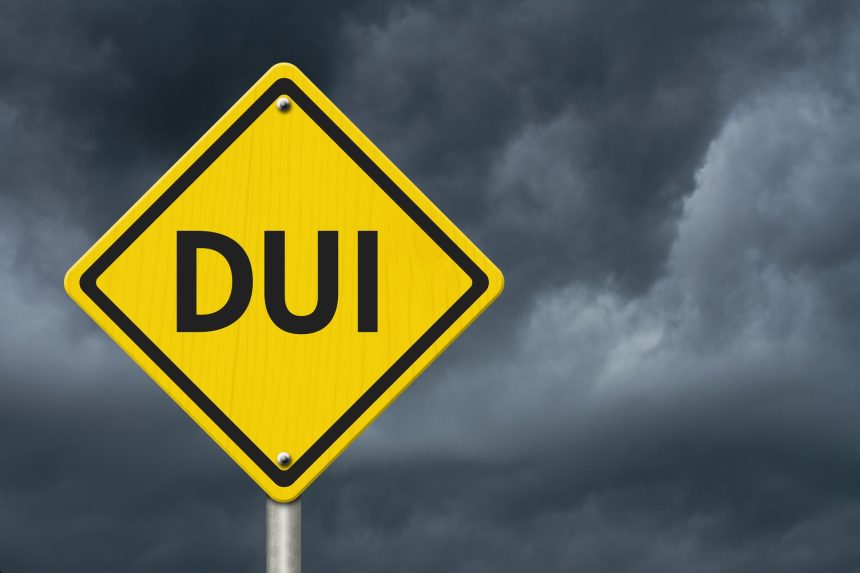A DUI charge carries severe consequences, including hefty fines, potential jail time, and license suspension. It impacts personal and professional life, raising insurance rates and damaging reputation. Understanding these repercussions highlights the importance of responsible driving and the serious legal and financial risks associated with impaired driving.
What is DUI?
Driving while intoxicated, either by drugs or alcohol or with a Blood Alcohol Concentration (BAC) exceeding the legal limit, is termed as driving under the influence (DUI). DUIs carry grave legal and personal consequences and are considered serious offenses. If you’re facing such charges, consulting a Spokane DUI attorney can guide you through this difficult time. The statutory definition and thresholds for DUI may vary by state, but the standard limit for BAC is typically 0.08%. Factors such as age, tolerance levels, and driving history can also influence DUI charges and penalties.
Legal Ramifications of a DUI
Depending on the jurisdiction and specific case details, a DUI conviction can result in a wide range of legal consequences. Consulting a DUI lawyer is crucial to navigating these complexities effectively. Common penalties include fines, license suspension, and even jail time. Ignition interlock devices, which stop the car from starting if the driver smells alcohol, may occasionally be mandated for offenders. The severity of the punishment often correlates with the BAC level and whether it’s a first-time or repeat offense. Repeat offenders face much harsher penalties, including longer prison sentences and more substantial fines, reflecting the judicial system’s efforts to deter habitual offenders.
Financial Impact of a DUI Conviction
One of the most immediate consequences of a DUI is the financial burden. Legal fees, court fines, and increased insurance premiums can quickly rise. According to the National Highway Traffic Safety Administration, a DUI conviction can lead to significant financial costs accumulating over time, amounting to thousands of dollars. These costs include not only fines but also lost pay from missed work. Fees for required education classes and the setup and upkeep of an ignition interlock device could be additional expenses.
Impact on Employment Opportunities
A DUI conviction can severely impact an individual’s employment prospects. Numerous employers perform background checks and could see a DUI unfavorably on a job applicant’s file. Employment positions that involve driving or operating heavy machinery are rigorous regarding those convictions. Moreover, being convicted of a DUI can lead to dismissal in numerous job settings, particularly those that necessitate an untarnished driving history. The negative perception linked to a DUI can also hinder progress in one’s career and can restrict options in specific career fields, like law enforcement, healthcare, and education.
Mandatory Driver Education Courses
In many jurisdictions, individuals convicted of a DUI are required to attend mandatory driver education or substance abuse courses. These initiatives aim to deter future incidences by teaching offenders about the risks associated with intoxicated driving. Courses often cover the long-term effects of alcohol and drugs, the legal implications of impaired driving, and sobering real-life stories from victims and offenders. Through the instillation of a greater awareness of the risks and societal effects of driving while impaired, these educational programs play a significant role in rehabilitation and in lowering the possibility of reoffending.
Long-Term Consequences of DUI
DUIs can have long-term effects beyond their immediate financial and legal ramifications. A felony DUI conviction may have a lasting negative impact on your criminal record, making it more challenging for you to obtain future employment, housing, and credit. Additionally, it can lead to social stigma and strain personal relationships. It’s crucial to be aware of these long-lasting effects when making decisions about alcohol and driving. Repeated offenses can result in accumulated penalties and a progressively damaged reputation, compounding the individual’s struggle to rehabilitate and reintegrate into society.
Preventative Measures Against DUI
Preventing DUI offenses requires a combination of public education, strict enforcement of DUI laws, and the availability of alternative transportation options. Efforts such as those implemented by Mothers Against Drunk Driving (MADD) have been instrumental in reducing DUI incidents through awareness campaigns and community programs. Utilizing ride-sharing services, public transportation, or designated drivers is a practical measure to prevent DUI. Public policy and community initiatives, such as promoting social responsibility and providing resources for safe travel options, are vital in curbing DUI occurrences.
Seeking Legal Assistance
If you or someone you know is facing a DUI charge, seeking legal assistance is crucial. Experienced DUI attorneys can navigate the complexities of the legal system and guide the best course of action. Having competent legal counsel can significantly impact the outcome of a DUI case, sometimes resulting in reduced penalties or, in some instances, dismissal. A skilled lawyer can bargain for plea agreements, push for shorter sentences, and offer important advice during legal proceedings to protect the defendant’s rights and secure the most favorable result.













